By Dawn Michelle Michals
The start of sixth grade is here. You and your eleven or twelve-year-old are gearing up for a great school year. Whether you’ve been homeschooling since pre-K or this is your first time leading your child’s education, you are in the right place! We have compiled everything you need to get started homeschooling 6th grade and keep you on track. From competencies and developmental milestones, to field trip ideas and more, we have it all included below.
Homeschooling curriculum in the state of Texas must include the five basic subjects of reading, spelling, grammar, mathematics, and good citizenship. Science, history, and social studies are also included below for you. Not in Texas? Check out state requirements for homeschooling sixth grade in your state.
Your emerging sixth grader is going through a lot of changes right now both emotionally and physically. Bowing to peer pressure is a concern as your child is now more in tune with the world around him and his desire to fit in, yet he desires to be an individual at the same time. Growth spurts will gain intensity this year and will bring the need for a lot more sleep. The process of growing up comes with some awkwardness as well as an increased awareness of the effects of world events such as climate change, war, and pandemics. Your child may start questioning your authority because she no longer takes things at face value. These milestones set the course for understanding and developing the worldview and values that will make them a successful adult.
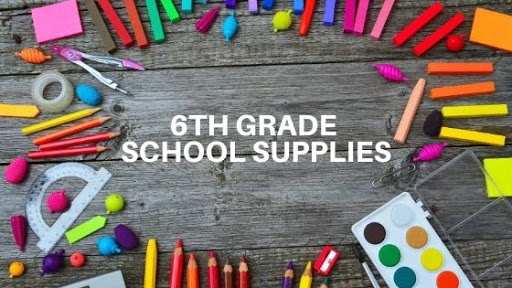
Suggested School Supplies for Sixth Grade
- Pencils
- Pencil sharpener
- Eraser
- Pens
- Lined paper, spiral notebooks, and/or composition notebooks
- Index cards
- Binders (if needed)
- Folders
- Colored pencils
- Highlighters
- Paints (tempera and watercolor)
- Paintbrushes
- Paper for painting
- Construction paper
- Whiteboard
- Dry erase markers
- Ruler
- Protractor
- Scissors
- Glue sticks
- White glue
- Tape
- Math manipulatives
- Sight word flash cards
- Math flash cards (ex. multiplication tables)
- Bookmarks (for longer books)
- Globe
- Wall maps of the world and the United States
- Library card
- 3-hole punch
- Computer supplies (as needed; paper, ink cartridges)
Sixth Grade Milestones by Subject

Language Arts for Sixth Grade
- Consistent and accurate use of standard English conventions such as noun-verb agreement, verb tenses, capitalization, etc.
- Able to summarize a story orally or in writing.
- Uses print or digital resources to determine the meaning, syllabication, pronunciation, word origin, and part of speech.
- Independently uses context clues within a sentence or paragraph to understand the meaning of words.
- Actively participates in discussions.
- Follows and gives oral instructions with multiple steps.
- Able to differentiate between paraphrasing and plagiarism when using source materials.
- Able to use source materials effectively and ethically for written, oral or multimodal presentations.
- Reads independently for a sustained period of time.
Writing Skills Checklist for Sixth Grade
- Writes legibly in print and cursive.
- Writes to express feelings, tell stories, and summarize information.
- Able to follow written directions, and write effective directions.
- Understands how to use reference materials, takes notes, and prepares written reports.
- Has expanded understanding of literature (poetry, fiction, nonfiction, media, etc.).
- Demonstrates clarity in writing with beginning, middle, and end of stories.
- Uses grammar and punctuation correctly and effectively in writing.
- Can self and peer edit written works.
- Able to write based on the needs of the audience or assignment by changing sentence structure, vocabulary and voice.

History and Social Studies for Sixth Grade
- Knowledge of Europe, Russia and the Eurasian republics, North America, Central America and the Caribbean, South America, Southwest Asia, North Africa, sub-Saharan Africa, South Asia, East Asia, Southeast Asia, Australia and the Pacific realm.
- Understands relationships that exist among world cultures including trade, travel and war.
- Understands the similarities and differences within and among cultures in various world societies.
- Able to quote the first line of the Declaration of Independence and the Preamble to the United States Constitution.
- Able to identify our Founding Fathers and Patriot heroes.
- Understands the main ideas in the Declaration of Independence, the U.S. Constitution, and the Bill of Rights.
- Understands how various societies organize their governments by rule by one, few or many, and is able to identify examples.
- Understands categories of economic activities and is able to define and give examples of agricultural, retail, manufacturing (goods) and service industries.
- Able to describe levels of economic development of various societies using indicators such as life expectancy, gross domestic product (GDP), GDP per capita and literacy.
- Understands and can describe the differences between limited and unlimited government, is able to give examples of each and identifies reasons for limiting the power of government.
- Able to identify and describe examples of human rights abuses by limited or unlimited governments such as the oppression of religious, ethnic and political groups.
Math Checklist for Sixth Grade
- Understands the basics of personal finance including debit and credit cards, balancing a checkbook and the importance of a positive credit history.
- Uses basic algebra skills to solve for the unknown such as 9+x=11.
- Uses formulas to find the area, perimeter and volume of shapes.
- Use coordinates to locate points on a grid, also known as graphing ordered pairs.
- Able to work on fractions, percentages and proportions.
- Able to apply mathematics to solve problems that arise in everyday life, society and the workplace.
- Adds, subtracts, multiplies and divides integers fluently.
- Multiplies and divides positive rational numbers fluently.
- Able to convert units within a measurement system, including the use of proportions and unit rates.
- Understands ratios and rates to solve real world problems.
- Understands proportionality.
- Uses coordinate geometry to identify locations on a plane and is able to graph points in all four quadrants using ordered pairs of rational numbers.

Science Experiments and Skills for Sixth Grade
- Able to conduct laboratory and field investigations and uses safe practices to do so.
- Able to use a variety of tools for scientific inquiry and uses them correctly.
- Knows the differences between elements and compounds.
- Understands that physical properties can be used for classification of minerals and metals.
- Knows force and motion are related to potential and kinetic energy.
- Understands the difference between renewable and nonrenewable resources and the advantages and disadvantages of each type.
- Understands and identifies the structure of Earth, the rock cycle and plate tectonics.
- Understands the importance of our Earth in space and is able to describe the physical properties, locations, and movements of the Sun, planets, moons, meteors, asteroids and comets.
- Understands that all organisms are composed of cells and can identify the basic characteristics of organisms, their mode of reproduction and classify them in the currently recognized kingdoms.
Five Science Experiments for Homeschooling Sixth Grade
What better way to enhance understanding of our natural world than to incorporate science into your sixth grade school day? Here are five fun and easy experiments for you and your budding scientist:
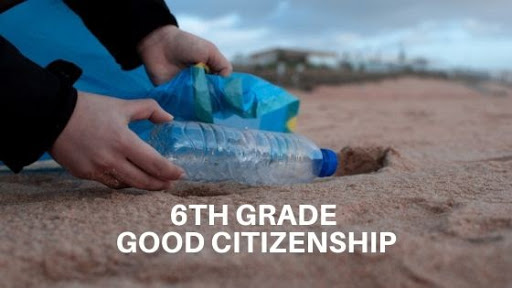
Good Citizenship Lesson Plans for Sixth Grade
Being a good citizen not only means understanding the privileges of citizenship and the right to vote, but also respect for our planet, good stewardship and understanding the world around us. Below are ideas to assist you and your young learner in understanding the relationship among individual rights, responsibilities, duties and freedoms in societies with representative governments, as well as why civic participation is so important. If you are in need of resources and lesson plans to fulfill this requirement, consider joining THSC. We offer our “Lone Star Study” guide as a free download for our members.
Here are a few ideas:
- Become involved in events and initiatives such as Capitol Days sponsored by THSC.
- Learn about the electoral process in local, state and national elections.
- Register to vote and vote! Take your child with you to see the process. Children under the age of 18 are allowed to go with you and even go inside the booth with you in every state in the United States. In our state, one child under the age of 18 is allowed to accompany a parent.
- Learn about the voting process in other cultures and discuss how they are the same as or different from ours in the United States. Have them describe the role of citizens and how their influence and opportunity to participate in the civic arena differs among cultures.
- Write a letter to your elected officials in support of or against legislation affecting lives within your community. Start a letter writing campaign to get others involved!
- Attend city council meetings and discover the workings of your town.
- Volunteer at a food pantry, animal shelter or other organization. Many places allow younger children to participate with a parent or guardian.
- Learn about local and national non-profit organizations and how each serves your community, such as United Way or the Boys and Girls Clubs of America.
- Attend rallies of causes you believe in as a family.
- How is your town significant in Texas history? Find out! Visit the library or chat with a local historian.
- Learn the words to “Texas, Our Texas” and discover the meaning and history of the Pledge to the Texas Flag and the Pledge of Allegiance.
- Discover how each of us affects the environment, from how much water we use to how much trash we produce. Then, discuss and implement ways you as a family can lessen your impact.
- Learn about where and how you can recycle items in your community.
- Keep our state clean by picking up litter everywhere you go.
- Did you know that flags from six nations have flown over our state? Learn which countries played a role in our history and why.
Developmental Milestones for 11-Year-Olds
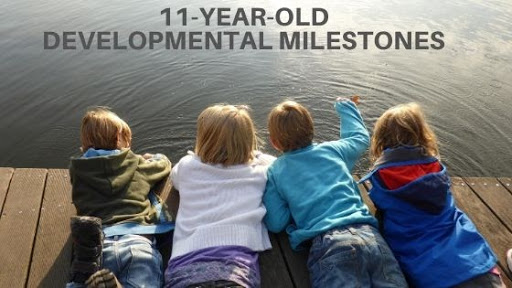
All children develop at different rates. However, certain skills are easily identified by the age of eleven. If you have concerns about your child’s development after reviewing this list, please discuss those with your healthcare provider.
Gross Motor Skills
- Begins a growth spurt phase.
- Reaction times improve, contributing to motor skill development.
- Shows increased awareness of physical skills in all areas and is able to coordinate movements like martial arts or dribbling and shooting a basketball with better coordination.
- Overall increase in large muscle development, strength, balance and coordination.
- Increased hand-eye-coordination.
Fine Motor Skills
- Writing is fluid and less of an effort.
- Writing speed increases.
- Continues to increase skills while performing tasks such as folding clothes, typing, writing and drawing.
- Drawings become more sophisticated with depth cues through overlapping objects, diagonal placement and converging lines.
Language Development and Comprehension
- Uses voice inflection to add meaning to sentences.
- Asks relevant questions.
- Uses complex sentences and different types of sentences to express ideas clearly.
- Contributes meaningfully and understands social etiquette in conversations.
- More aware of others’ perceptions.
- Able to shift conversations based on increased awareness of the listener’s needs.
- Uses humor and even sarcasm effectively.

Sixth Grade Homeschool Reading List (10 Great Books or Series)
Find these books at your local library or find them at any bookstore. If you shop on Amazon, please visit Amazon Smile and choose Texas Home School Coalition as your charity of choice!
We also recommend checking with a site such as Redeemed Reader or Plugged-In as to the appropriateness of any particular book for your child and their personal maturity level.
Another wonderful place for book recommendations is The Read-Aloud Revival, which features booklists and reviews for all kinds of books and reading levels.
- The Chronicles of Narnia by C.S. Lewis. In this seven book series, readers learn the stories and meet the characters that have fascinated fans for 70 years. “The Lion, Witch and the Wardrobe was selected as one of America’s Top 100 Most Loved Novels by PBS’s The Great American Read. In the series, readers join in epic battles of good against evil, discover forever friendships and horrible betrayals, and meet the fantastic creatures that encompass Narnia.
- A Wrinkle in Time by Madeleine L’Engle shares the story of Meg, her brother Charles Wallace and their friend Calvin as they search across dimensions to save her father in this science fiction classic.
- The Maze Runner by James Dashner. Thomas only remembers his name as he arrives in the Glade surrounded by boys with no memories and a maze that changes everyday. There is no escape and the Grievers want nothing more than to kill you if you try. When a girl arrives, the first one ever, with a cryptic message, everything changes.
- Number the Stars by Lois Lowry shares the story of the Danish Resistance, who smuggled almost all of the Jewish population of Denmark to the shores of Sweden during German occupation in World War II. “The heroism of an entire nation reminds us that there was pride and human decency in the world even during a time of terror and war.” Told through the voice of 10 year old Annemarie.
- The Children’s Homer by Padraic Colum. From master storyteller Padriac Colum, winner of a Newbery Honor for The Golden Fleece, comes a collection of fifteen timeless stories inspired by classic Greek literature.
- Roll of Thunder, Hear My Cry by Mildred D. Taylor shows us racism and the importance of land ownership through the eyes of nine year old Cassie Logan in southern Mississippi during the Great Depression in this Newberry Award winner.
Magazines offer a great way for children to learn core subjects and relationship skills. Here are a few great options:
- WorldKids Magazine
- Answers Kids Magazine
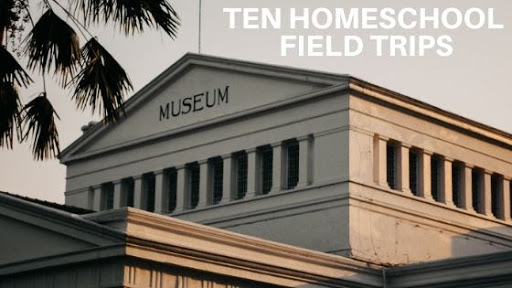
10 Awesome Homeschool Field Trip Ideas for Sixth Graders
Everyone loves a field trip! Don’t feel you have to leave your town or your own neighborhood to enjoy one. Be creative and your next stroll down the street can be an educational experience.
- First Responder Appreciation: Police, fire and EMS stations are located throughout most cities. Locate the one closest to your house and make a connection. Tour a fire station, talk to a police officer or reach out to an emergency medical technician and find out what it truly means to be a first responder.
- Government: THSC Capitol Days are one day, hands on events that allow homeschooling families to fully participate in the state legislative process. These events give the opportunity to defend the rights of homeschool families in Texas, meet representatives and staff and actually help pass a law. A free grade specific tour is available at our Texas state capitol, which includes history, architecture and the legislative process.
- Job Fair: Visit a farm, watch a lawyer in court, chat with a pastor or priest, or cook alongside a chef. Electricians, college professors, nurses and more are available to show you the ins and outs of their careers and help guide an eager learner on a possible career choice.
- Historical Sites: Bring your homeschool studies to life by visiting the places you are learning about each day. That’s the freedom of homeschooling! Discover places close to home or go on a road trip tour through Texas and learn along the way.
- Museums: Set out for the far reaches of the unknown with a visit to the Space Center in Houston, Texas. The center is filled with “400 space artifacts, permanent and traveling exhibits, exhibits and experiences and theaters related to the exciting future and remarkable past of America’s human space flight program.” The center is the Official Visitor Center of NASA Johnson Space Center and a Smithsonian Affiliate.
- Sports: From The International Bowling Museum and Hall of Fame in Arlington, Texas to Minute Maid Park in Houston,Texas is home to a diverse array of sports museums and activities perfect for every homeschooler.
- Libraries: The local library tends to be our home away from home for a homeschooling family. Most libraries offer summer programs, clubs and events including spring break activities. And, they aren’t just for little kids! Teen groups, anime meetups, coding camps and more are held throughout the year at local libraries throughout the state. Check with yours and plan ahead to take advantage of free programs and educational opportunities.
- Theater, Music and Art: Grab a blanket and head to a free outdoor concert, stroll through a sculpture garden or get those must see tickets to the latest show. Music, art and theater will open your child’s mind to other worlds and experiences. Many communities offer children’s theater groups and civic theaters.
- Get Outside: What better way to learn about ecosystems than by searching for insects, nests and other furry habitats in your own backyard! Go for a walk, visit a pond and discuss the different types of wildlife, or take a stroll through your neighborhood. Simply walking around noticing nature opens up a world of conversations with your preteen. Need a road trip? Head west toward our Great Plains, mountains and basin region and discover the birds and creatures that make up this diverse ecosystem. The possibilities are endless!
- Living History: Museums and special events throughout Texas offer presentations and workshops that keep the craftsmanship, allure and heirloom skills of our past available for your family to learn today. Pick your time period and head outside! Groups across the state work to ensure historical accuracy, such as the Crossroads of Texas Living History Association and the Texas Living History Association.
For more Texas road trip ideas and beyond, check out our roadschooling page.
We hope you found this helpful in preparing to homeschool sixth grade. Have fun this year!
We believe homeschooling is one of the best educational models, which is why we support families with encouragement and practical resources like you found in this article. Won’t you join us in making these resources available to homeschooling families by becoming a member?

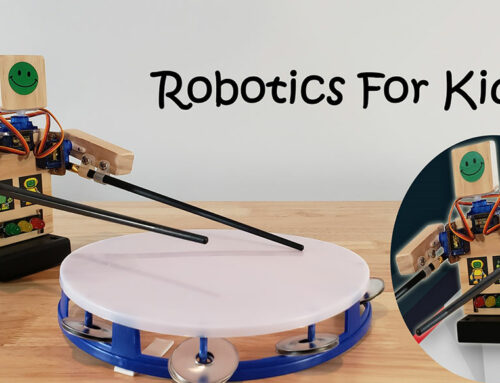


Apparently, I need to go back to 6th grade.
You made me smile Lindsay! One of the things I most enjoy about homeschooling is that I learn alongside my child.
Thank you for sharing, Ashley – Customer Relations
I’ve been homeschooling off and on for 4 years now and heading into middle school years now. This list seems pretty demanding, I don’t remember being so skilled in 6th grade lol. So what’s your opinion/suggestion of a curriculum, or mix of curriculum, that will best help me in helping my 6th grader reach these milestones?
Where working on character issues and I have resources for that. Buf I need help with the academic part. Thanks!
Dear Rebeca,
I tend to use these as a guide in my family and consider the list more like a “buffet” in that I do not need to take one of everything, but a good variety will still be more than enough. In Texas, there are no specific providers that are required, and there are so many options, that it would be difficult to suggest one since what I love is not necessarily what is best for another family. I would recommend looking first to what works best for your specific needs, for instance, if you do not feel competent in one subject or another, you might consider a DVD or online streaming-based program, that enables your student to watch a teacher before completing lessons.
There are also so many styles of curriculum, from textbooks to living books and unit studies to classical or Charlotte Mason methods and even unschooling. I will send you some guides to help you determine the learning styles and teaching styles below. These may offer you some ideas of what to look for. If you need to reach out to us for more suggestions, you can always use our homeschool help form at https://thsc.org/contact/
Find the learning styles quiz: https://thsc.org/learning-styles-quiz/
Find the teaching styles quiz: https://www.riddle.com/showcase/261408/personality-test
Please use the contact form above if you have any specific questions. Ashley – Customer Relations